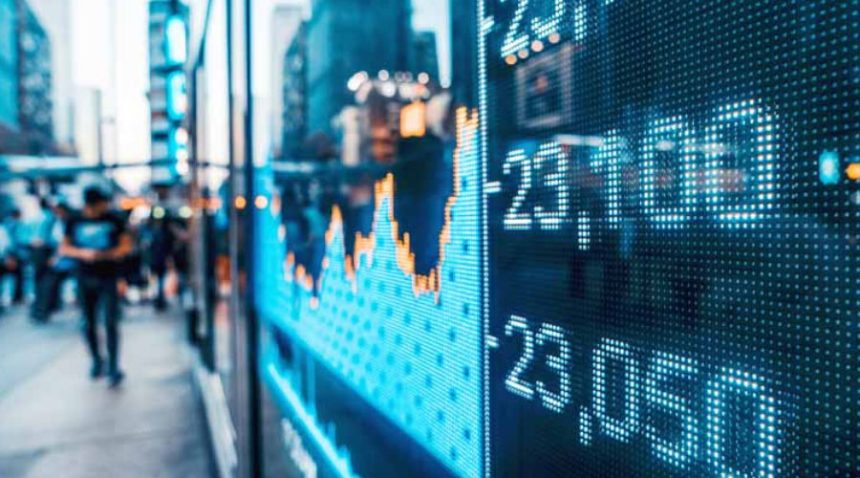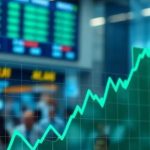Explore the biggest global risks and how investors are adapting to protect and grow their portfolios
The global investment environment is full of challenges this year. Investors are dealing with unpredictable situations caused by political tensions, economic instability, rising debts, technology risks, and climate-related concerns. These risks are forcing financial institutions and individual investors to rethink how they invest and protect their money.
Geopolitical Tensions and Trade Policy Changes
Political conflicts between countries are one of the biggest worries for investors today. One major concern is the rising chance of wars or armed conflicts, which can quickly disrupt financial markets and economies.
Recent changes in trade policies, such as sudden tariffs or import taxes, have created confusion. For example, a plan to add high tariffs on goods from the European Union caused strong reactions in the stock markets. The Dow Jones Index, which tracks the U.S. stock market, jumped over 700 points when those tariffs were delayed. This kind of sharp reaction shows how sensitive markets are to political announcements.
In response, many investors are shifting money into international markets. They are focusing more on countries like Australia and regions such as Europe and emerging markets (excluding China) to avoid risks tied to U.S. trade policy decisions.
Inflation and Interest Rate Challenges
Inflation, the rise in prices over time, continues to affect the global economy. In many countries, inflation remains above the targets set by central banks, making it harder for people and businesses to afford everyday expenses.
To control inflation, central banks often raise interest rates. While this helps slow price increases, it also makes borrowing money more expensive. Higher interest rates can reduce spending and investments, which may slow down economic growth.
In the United States, the Federal Reserve is trying to manage this delicate balance. With the added uncertainty from trade issues and political risks, central banks are being very careful with their decisions. Investors are watching interest rate changes closely, as these directly impact stock and bond values.
High Global Debt Levels
Debt levels around the world have reached record highs. Governments, companies, and even households have borrowed more money than ever before. Altogether, global debt is now more than 2.5 times the world’s total income (GDP).
This is worrying because high debt makes economies weaker during hard times. Rising interest rates also mean that paying back this debt becomes more expensive, especially for countries that already owe a lot.
There is also concern that the market for government bonds (loans made to countries) is becoming less stable. Financial experts warn that without proper rules and transparency, risks in this market could trigger bigger financial problems.
Market Volatility and Unpredictable Investor Behavior
Financial markets have been swinging up and down more often. Sudden policy changes and economic concerns are making investors nervous, leading to sharp price changes in stocks and other investments.
Some of this volatility is made worse by new trading tools that allow people to bet on very short-term price movements. While these tools can bring high profits, they also add to market instability.
To deal with this, investors are choosing safer, more stable options. They are putting money into industries like healthcare and consumer goods, which tend to perform better during uncertain times because people always need these services and products.
Technology Risks and Cybersecurity Threats
Rapid changes in technology have created new risks for the financial world. As more financial systems go digital, the chances of cyberattacks grow. Hackers are now using advanced tools like artificial intelligence (AI) to carry out complex attacks, including fake videos (deepfakes) and smart malware.
There is also growing concern about quantum computing. This new technology could eventually break current security systems, putting sensitive financial data at risk.
To stay safe, banks and investment firms are spending more on cybersecurity. Many are exploring stronger encryption methods that can resist future threats from quantum computers.
Environmental Risks and ESG Investing
Environmental problems are now considered serious financial risks. Issues like extreme weather, pollution, and loss of natural resources are not just environmental challenges—they can also damage businesses and economies.
As a result, investors are paying more attention to ESG (Environmental, Social, and Governance) factors when choosing where to invest. ESG investing focuses on companies that are environmentally friendly, socially responsible, and well-managed.
Research has shown that ESG investments often perform better during tough times. This makes them attractive not just for ethical reasons but also as a way to manage risk.
De-globalization and Supply Chain Issues
More countries are focusing on protecting their economies, leading to what is known as deglobalization. This trend has disrupted international supply chains, causing delays, shortages, and higher costs.
The global investment world is being shaped by uncertainty. Geopolitical tension, inflation, high debt, technology changes, and climate concerns are all playing a role in how investors make decisions. Traditional investment approaches are no longer enough. Investors are now more focused on being flexible, staying informed, and building strategies that can adapt quickly.
By paying attention to global developments and carefully managing risks, investment strategies can still succeed, even in uncertain times. The key lies in preparation, diversity, and a strong understanding of the forces shaping the world economy today.





